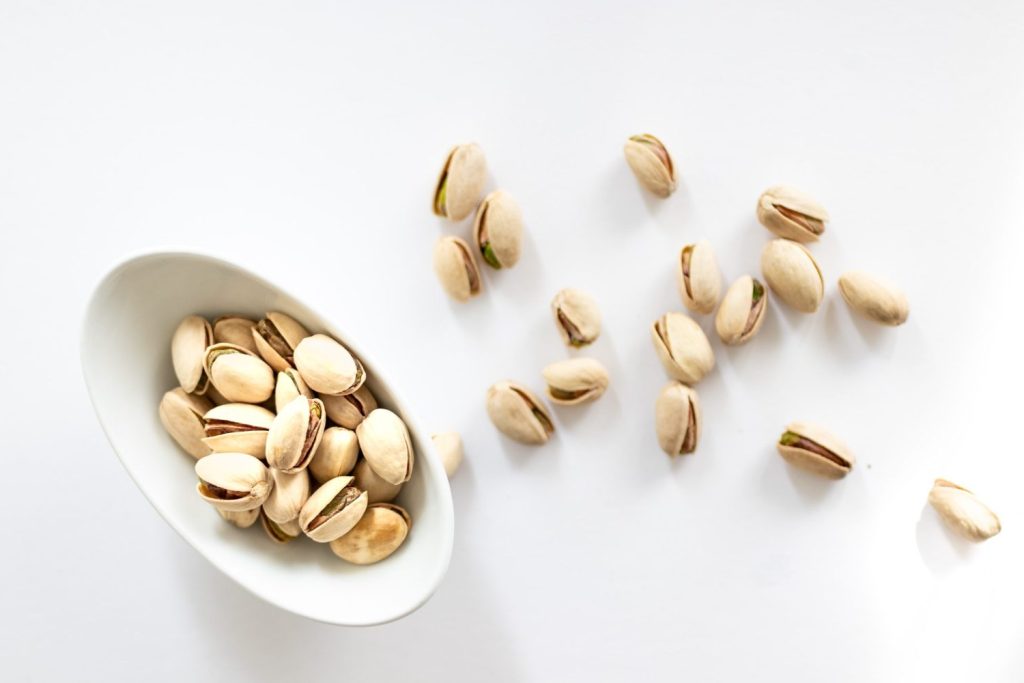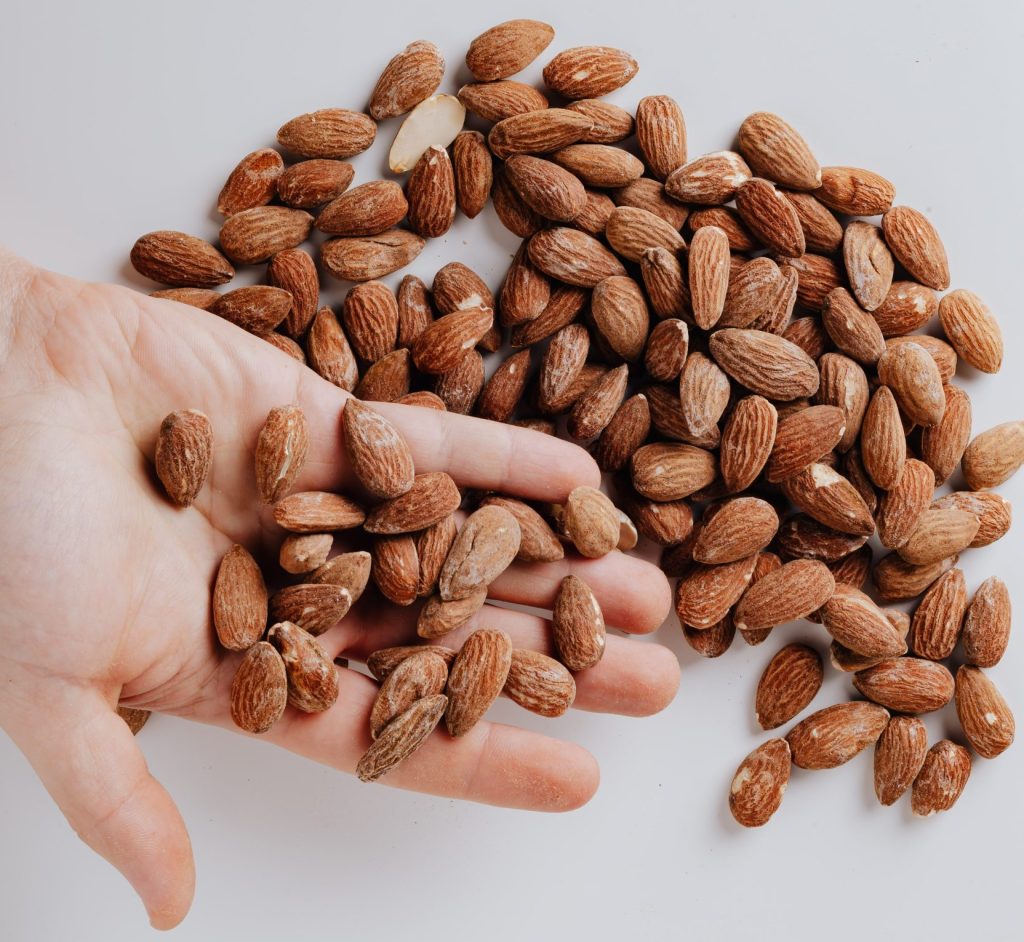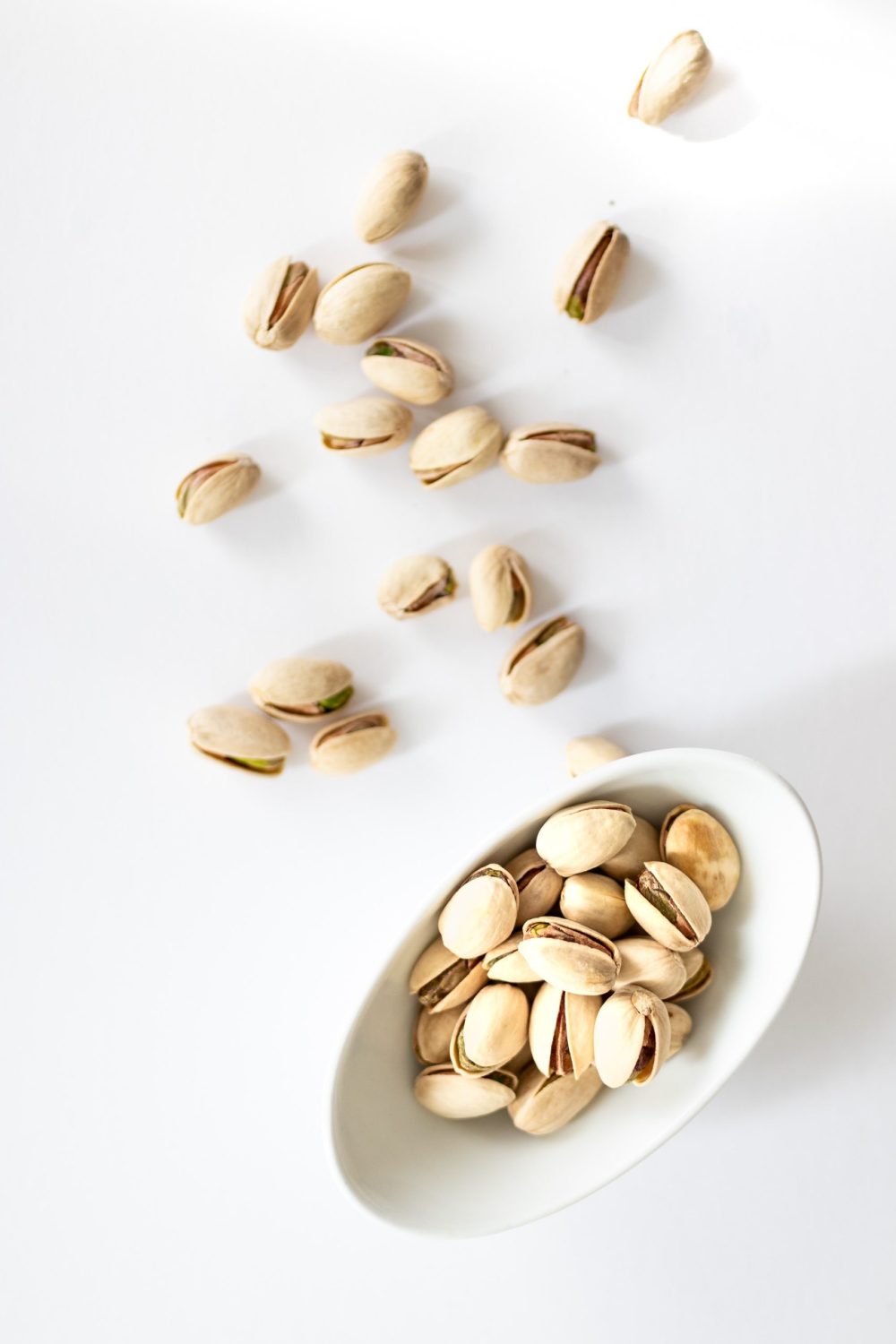Are nuts bad for me?
If you are allergic to nuts, then yes, they are very bad for you.
If you are not allergic to nuts, they are very good for you. Nuts are even protective against heart disease, cognitive health and can have a positive effect on weight control when eaten in moderation.
In this post, I will explain why nuts are good for you, why they might be considered bad, and how to include them as part of a healthy diet.

Skip to
Why are Nuts Good
Nuts have been consumed by people for thousands of years.
In recent years, there has been debate about how ‘healthy’ nuts are due to their high-fat content. Since then, there have been many studies investigating the effects of nuts on our health and consistently these studies prove nuts to be beneficial for our health.
Nuts are a part of a healthy diet pattern and evidence-based eating plans such as the Dietary Approaches to Stop Hypertension (DASH diet), Mediterranean diet, plant-based and vegetarian diets.
Nutrients
Nuts provide many beneficial nutrients.
They are a source of protein, fibre, healthy fats, vitamins and minerals as well as antioxidants and phytosterols.
Protein is important for muscle growth and maintenance, repair and regulation within the body as well as help us feel full for longer.
Fibre is the indigestible part of a plant. It is an important part of the diet because it contributes to a healthy gut, improves cholesterol, and blood sugar levels, reduces risk of disease, improves digestion, and helps keep us full. Women should aim for 25g of fibre per day, and men 30g per day. Fibre is found in fruits, vegetables, grains, nuts, seeds and legumes.
Many nuts contain substantial vitamin E. Vitamin E acts as an antioxidant which removes free radicals (which damage cells in the body). Vitamin E also contributes to skin, eye and immune health.
Nuts contain Some B vitamins such as vitamins B1, B3, B6, and B9. There are 9 B vitamins and they help the body generate energy. While they don’t provide the body with energy, they use the macronutrients (carbohydrates, fat, and protein) to yield energy. They are also important for cellular function.
Nuts also contain the following minerals: magnesium, zinc, iron, copper, selenium, phosphorus, and potassium. Minerals are important for fluid balance, muscle and nerve function, and bone building, and are an important part of hormone and enzyme function.
Effect on cholesterol
Due to nuts’ unsaturated fat content, they have the ability to lower ‘bad’ (LDL) cholesterol and raise ‘good’ (HDL) cholesterol. They also contain a compound called phytosterol which help with the removal of cholesterol.
Foods like avocado, olive oil, oily fish, nuts and seeds, contain unsaturated fats.
Foods like butter, lard, full-fat dairy, coconut oil, deep-fried foods, pastries, fatty meat, and deli meats contain saturated fats. Saturated fats raise bad (LDL) cholesterol and increase the risk of heart disease.
How many nuts a day?
One handful, or 30 grams of nuts per day is recommended.

Why might nuts be bad?
Bad is a strong word in the nutrition world. The word ‘bad’ demonizes certain foods and associates it with feelings of fear and guilt. And as we have established, nuts are not bad, unless you are allergic.
Below are some of the reasons people believe nuts are ‘bad’.
Fat content
Nuts are high in fat. Most of this fat is from unsaturated fat and minimal from saturated. While the fat content is high, it doesn’t mean it is bad for us. Fats from unsaturated sources have a positive effect on cholesterol and lowering heart disease risk. The fat content does, however, mean that they are energy-dense. This means that for a small amount, you will be consuming a lot of calories. This is not necessarily a bad thing; in fact, it means that you can eat less and still feel full.
Bloating
Some people may find that nuts cause bloating. Nuts contain high amounts of fibre and fats, which means they take time to digest. In the digestive system, the indigestible, fibrous part of the nuts are able to make its way through to the large intestines where it acts as a prebiotic for your gut bacteria. Feeding your good gut bacteria is important for a healthy gut and increasing the diversity of good bacteria. This process can cause gas and bloating. If it is causing you discomfort, you can try reducing the amount of nuts, swapping the type of nuts, and soaking raw nuts in water to help break down phytates and tannins that the body struggles to digest.
High in salt
You can purchase some nuts in salted variations. This can include trail mixes or plain nuts. A diet high in salt is linked with high blood pressure and other chronic illnesses. If your diet is relatively low in sodium or you sweat excessively, then salted nuts aren’t a problem. Sodium (a chemical element found in salt) is a nutrient needed for proper fluid balance, and muscle and nerve function. While over-consuming sodium is a problem, so is under-consumption. It is recommended to keep sodium intake to 460-920mg per day for healthy adults.
Which nuts are the best?
Including a variety of different types of nuts is a good idea because you will receive slightly different nutrients from each different type of nut.
All nuts are generally healthy and contain fibre, protein and vitamins and minerals. Here is a list of nuts to try out.
- Walnuts
- Almonds
- Brazil nuts
- Cashews
- Macadamia
- Peanuts
- Pistachios
- Hazelnuts
- Pecans
I hope this post has helped you understand more about nuts, their benefits and how to include them into your diet!
Let the posts come to you!
Recent posts
Enter any nutrition and fitness questions below!
Your question might feature in the next post!

Comments are closed